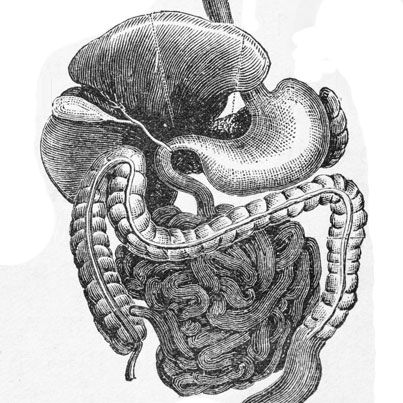FDA Grants Fast Track Designation to MM-398 for Pancreatic Cancer
MM-398 (nal-IRI) plus 5-fluorouracil (5-FU) and leucovorin received a Fast Track designation from the FDA as a second-line treatment for patients with metastatic pancreatic cancer.
MM-398 (nal-IRI) plus 5-fluorouracil (5-FU) and leucovorin received a Fast Track designation from the FDA as a second-line treatment for patients with metastatic pancreatic cancer.

MM-398 (nal-IRI) plus 5-fluorouracil (5-FU) and leucovorin received a Fast Track designation from the FDA as a second-line treatment for patients with metastatic pancreatic cancer. The designation was based on data from the phase III NAPOLI-1 study that were presented at the 2014 World Congress on Gastrointestinal Cancer in June 2014.
In the NAPOLI-1 trial, treatment with MM-398 plus 5-fluorouracil (5-FU) and leucovorin extended overall survival (OS) by 37% and progression-free survival (PFS) by 44%, when compared with 5-FU and leucovorin alone for patients with metastatic pancreatic cancer following progression on a gemcitabine-based regimen.
The new Fast Track designation is meant to expedite the development and review of MM-398, which is a nanoliposomal encapsulation of irinotecan. As part of the FDA’s expedited review program, Merrimack Pharmaceuticals can submit information for a New Drug Application for MM-398 to the FDA in sections. The company announced that it plans to initiate the submission process in 2014, with a targeted completion date set for the beginning of 2015.
"It is crucial to develop new therapies for patients with pancreatic cancer, particularly for those patients who have previously received gemcitabine-based therapy where there is currently no consensus on the standard of care," Eliel Bayever, MD, vice president at Merrimack and the medical director for MM-398, said in a statement. "We will continue to work diligently on our NDA submission in an effort to bring MM-398 to patients who are facing this aggressive disease as quickly as possible."
The phase III open-label NAPOLI-1 trial enrolled 417 patients with gemcitabine-refractory metastatic pancreatic cancer. Altogether, 61% of patients had cancer in the head of the pancreas and 68% had liver metastases. Patients were randomized in a 1:1:1 ratio to MM-398 monotherapy, 5-FU with leucovorin (control), or MM-398 plus 5-FU and leucovorin. Per standard irinotecan protocols, dexamethasone and a 5-HT3 antagonist could be administered in arms A and C.
As monotherapy, intravenous MM-398 was administered at 120 mg/m2every 3 weeks. In the control, 5-FU was administered at 2000 mg/m2with racemic leucovorin at 200 mg/m2every 4 weeks followed by 2 weeks of rest. In the combination arm, MM-398 was administered at 80 mg/m2prior to 5-FU at 2400 mg/m2and racemic leucovorin at 400 mg/m2every 2 weeks.
Patients in the combination arm had a median OS of 6.1 months versus 4.2 months with 5-FU and leucovorin alone (HR = 0.67; 95% CI, 0.49-0.92;P= .012). The median PFS was 3.1 months for the combination compared with 1.5 months with the control (HR = 0.56; 95% CI, 0.41-0.75;P= .0001). The overall response rate was 16% versus 1% (P<.001) and CA19-9 levels were decreased by ≥50% in 36% versus 12% of patients in the combination and control arms, respectively.
MM-398 monotherapy did not demonstrate superior efficacy compared with 5-FU and leucovorin. Moreover, in some cases, MM-398 alone was associated with more side effects than the drug in combination. The rates of diarrhea were 12.8% versus 21.1% and the rates of vomiting were 11.1% versus 13.6% for the combination and single-agent MM-398 arms, respectively. Additionally, febrile neutropenia occurred in 1.7% of patients in the combination arm compared with 4.1% with MM-398 monotherapy and not at all with 5-FU/leucovorin alone.
The most frequent grade 3/4 adverse events with MM-398 plus 5-FU/leucovorin were neutrophil count decrease (23.1%), fatigue (13.7%), diarrhea (12.8%), and vomiting (11.1%). Investigator assessed neutropenia occurred in 14.5% of patients receiving the MM-398 combination, whereas neutrophil count decrease was reported in the lab reports for 10.3% of patients.
Kim Evaluates New Regimens for EGFR+ Lung Cancer
January 20th 2025During a Community Case Forum event in partnership with the Medical Oncology Association of Southern California, Edward S. Kim, MD, MBA, discussed the FLAURA2 and MARIPOSA trials of newer regimens for EGFR-positive lung cancer.
Read More
Nivolumab demonstrated superior efficacy in LA-HNSCC, whereas the combination of durvalumab and cetuximab showed limited success. Abenacianine received fast track designation for lung cancer surgery, the combination of amivantamab and Lazertinib showed OS improvement in NSCLC, and sunvozertinib has been granted priority review status for NSCLC.
Read More